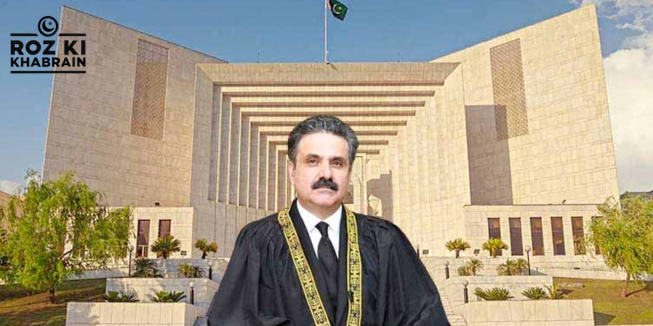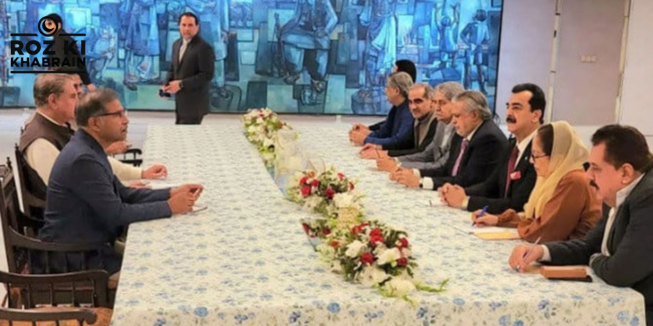ISLAMABAD: Chief Justice of Pakistan (CJP) Justice Yahya Afridi has called a meeting of the Judicial Commission of Pakistan (JCP) in Islamabad for November 5.
As the head of the JCP, Justice Afridi will preside over this meeting, which will mark the first gathering since the 26th constitutional amendment and the restructuring of the commission. Significant developments regarding the formation of constitutional benches are anticipated during this session.
Earlier today, National Assembly Speaker Ayaz Sadiq appointed five representatives—four parliamentarians and one woman—to serve in the Judicial Commission of Pakistan (JCP). The NA Secretariat announced that the list of nominees has been submitted to the Supreme Judicial Commission (SJC) via a formal letter.
The JCP, which is tasked with appointing judges to the Supreme Court, High Courts, and the Federal Shariat Court, also assesses the performance of High Court judges. The reformed commission now includes parliamentary members as per the 26th Constitutional Amendment.
From the National Assembly, PML-N MNA Sheikh Aftab and Opposition Leader Omar Ayub have been nominated. In the Senate, the nominees include PPP Senator Farooq H. Naek, Opposition Leader Shibli Faraz, and former Senator Roshan Khursheed Barocha, with Ayub and Shibli representing PTI.
An NA spokesperson confirmed that all five nominations have been forwarded to the JCP Secretary, noting that the nominees provide equal representation from both government and opposition. Two Senate nominees were selected by Senate Chairman Yousuf Raza Gillani based on recommendations from Senate Leader Ishaq Dar and the opposition leader.
According to the 26th Constitutional Amendment, the JCP is chaired by the Chief Justice of Pakistan and includes two senators, two MNAs, three senior Supreme Court judges, the most senior judge of the constitutional bench, the Federal Law and Justice Minister, the Attorney General, and a senior Supreme Court advocate nominated by the Pakistan Bar Council. The commission also allows for the inclusion of a female or non-Muslim parliamentary member, who will be nominated for a two-year term.
Sources have previously indicated that PPP Chairman Bilawal Bhutto-Zardari and PML-N Senator Irfan Siddiqui were initially expected to represent the ruling coalition; however, the allies opted for different selections. Meanwhile, PTI announced on October 28 its decision to participate in the JCP, following an internal briefing that underscored the long-term significance of the opposition’s role within the commission.
Recently, the ruling coalition and several opposition parties passed constitutional amendments aimed at enhancing parliamentary powers, including the selection of the Supreme Court’s chief justice. This move has faced criticism from PTI and others, who view it as an attempt to compromise judicial independence. In the aftermath of these changes, Chief Justice Yahya Afridi, who ranks third in seniority, was appointed by the parliamentary committee, surpassing Justices Mansoor Ali Shah and Munib Akhtar.




